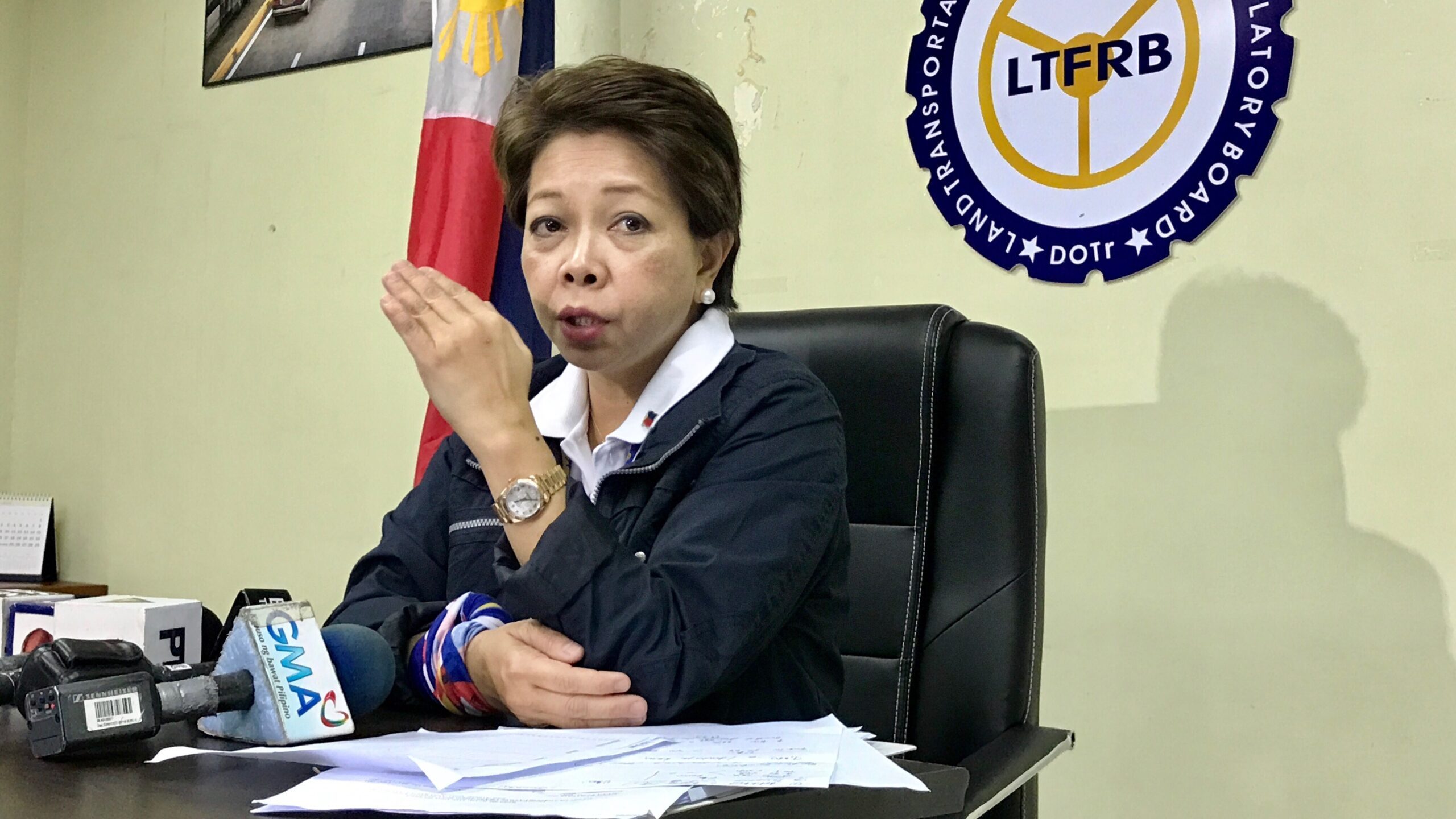SUMMARY
This is AI generated summarization, which may have errors. For context, always refer to the full article.

MANILA, Philippines – The Land Transportation Franchising and Regulatory Board (LTFRB) said on Thursday, July 27, that it is “seriously considering” setting “minimum” working hours for Grab and Uber drivers.
In a press briefing, LTFRB board member Aileen Lizada said the LTFRB qualifies transport network vehicle service (TNVS) providers as “public service” so they should observe a minimum number of hours on the road – just like government workers – to fulfill that duty.
“So if ever we will grant franchises, [there should be a] minimum number of hours na dapat online kayo. Kasi kung bibigyan kayo ng prangkisa, pero two hours a week lang kayo babiyahe, sayang. Bibigay na lang natin sa iba ‘yung prangkisa,” Lizada said.
(So if we will grant franchises, [there should be a] minimum number of hours that they need to be online. Because if we will give franchises, but they will only work for two hours a week, it would be a waste. It would be better to give the franchise to other operators.)
The board member said the measure will help regulate the drivers of TNVS operators, as there are currently 42,000 Grab and Uber drivers plying the roads.
Imposing minimum working hours, Lizada said, would also respond to a recently-revealed practice of Grab and Uber drivers who only go on the road “when surge prices are high.”
Currently, Grab classifies drivers as part-time if they stay on the roads below 40 hours a week, and full-time if they clock higher hours.
Uber, for its part, classifies drivers as “casual drivers” if they operate below 10 hours, part-time if below 40, and full-time if above 40.
The LTFRB bared the plan a day after its second technical working group meeting with Grab and Uber on Wednesday, July 26. On Wednesday, the agency announced that it ordered the deactivation of drivers who registered with Grab and Uber after June 30, 2017.
Lizada said they hope to be done with the meetings by September 2017, and produce memorandum circulars to fix the regulation deadlock. After that, the LTFRB plans to consult with Congress for a comprehensive law regulating the ride-hailing services.
There are bills filed in both houses of Congress seeking to regulate TNVS providers.
The transport network companies had earlier filed motions for reconsideration to delay the implementation of the LTFRB’s order issued last July 7, which instructed both TNCs to purge drivers without adequate documents. – Rappler.com
Add a comment
How does this make you feel?
There are no comments yet. Add your comment to start the conversation.